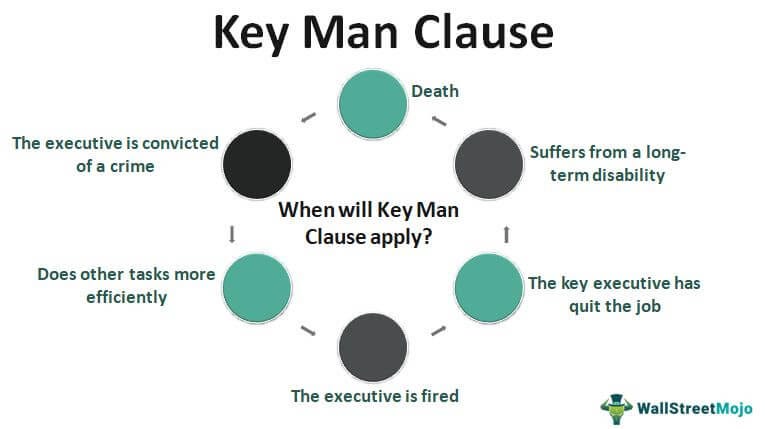KEY MAN CLAUSE
It is time to revisit the Partnership Agreements, Employment Contracts and Proposals to find out if they hold under scrutiny.
Nothing ever feels like you are special in an organization than seeing your contract inclusive of “key man” and all the benefits that are attached to it.
The key man clause has its roots in the need to manage and mitigate risks associated with the departure or unavailability of crucial individuals in organizations. Historically, businesses and partnerships have recognized that certain individuals possess unique skills, relationships, or expertise that are vital to the success of a project or company.
The concept became more formalized in legal agreements and contracts, particularly within the realms of venture capital, private equity, and fund management. In these industries, investors often rely heavily on the experience and vision of a few key individuals to drive success. The absence of these individuals could significantly impact the performance and management of investments.
Over time, the use of key man clauses expanded beyond finance and investment into other sectors where specific personnel are deemed indispensable. This evolution reflects a broader understanding of the strategic importance of key individuals in various types of organizations and projects. The key man clause serves as a risk management tool, providing reassurance to stakeholders that there are predefined measures in place should a critical team member become unavailable.
What Is Key Man Clause?
A key man clause is a provision typically found in contracts, especially in investment and partnership agreements, that stipulates specific actions or conditions if a key individual, often referred to as a "key man," is no longer involved in the project or business. This individual is usually critical to the success of the venture due to their expertise, leadership, or unique skills.
The clause may require the suspension of operations, a renegotiation of terms, or even allow for the termination of the agreement if the key person departs, becomes incapacitated, or dies. This clause aims to protect the interests of the other parties involved by addressing the potential risks associated with the loss of a crucial team member.
Example
Lets imagine FIRST THOUGHT is poised to become the biggest newsletter for a small country called Eswatini. It intends to provide high quality content and provide the very best ideas in play. Then a newspaper agency called “Eswatini Times” is interested in working with First Thought because of it’s innovative tailored content and forward thinking ideas. Eswatini Times is primarily interested in First Thought (F*T) because of the expertise and the vision of the founder Gcina, who’s behind the ideation of the initiative.
To protect their reputation and interests, Times of Eswatini includes a key man clause in the partnership agreement between First Thought and Eswatini Times. The clause states that if Gcina leaves the First Thought organization, becomes incapacitated, or is otherwise unable to continue his role, certain actions will be triggered:
Eswatini Times has the full right to cancel the agreement as they please.
Eswatini Times can reevaluate the idea to cease partnership or wait until a suitable replacement is installed.
If Gcina is not replaced with a suitable candidate in a specified time, Eswatini Times can withdraw the partnership.
Importance
Risk Management: It helps manage the risk associated with the departure or incapacitation of a key individual who is crucial to the success of a project or business. By having a plan in place, stakeholders can mitigate potential disruptions.
Confidence: For partners, the presence of a key man clause provides confidence that their partnership is protected. It reassures them that there are measures to address the impact if a critical person leaves, thereby safeguarding their interests.
Business Continuity: It ensures business continuity by outlining specific actions to be taken if a key person is no longer available. This can include suspension of operations, finding a replacement, or renegotiating terms, helping to maintain stability in the business.
Attracting Investment: Companies with key man clauses are often more attractive to investors because it shows a proactive approach to managing key personnel risks. This can make it easier to secure funding.
Legal Protection: It provides a legal framework for addressing the potential absence of key individuals, reducing ambiguity and potential disputes among stakeholders by clearly defining the course of action.
"A key man clause in your contract is like an insurance policy for genius – because sometimes, brilliance has an expiration date."



